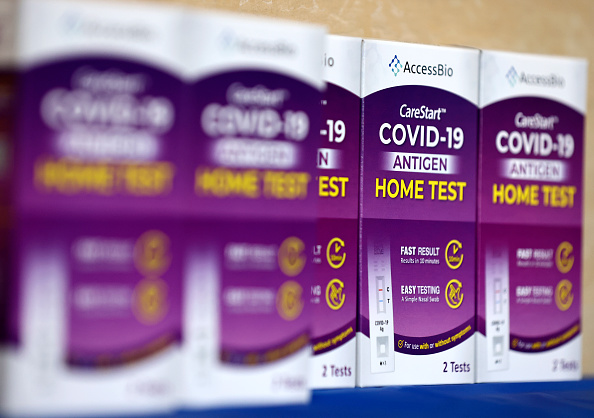The federal government has made free COVID-19 test kits available to the public, but the sticker price does not reflect their true cost to Americans.
The Biden Administration announced a third round of free COVID-19 tests for Americans in May. The administration previously made available up to four rapid antigen tests per U.S. household. The third round authorizes households to order eight more tests.
Access to federally subsidized tests, along with the free tests available through insurance providers, has been hampered by problems.
Supply chain issues and U.S. Postal Service delays have made it hard for Americans to access an adequate supply. Critics have also pointed out the administration’s inequitable distribution of tests and the hidden costs levied on insurance companies, which are ultimately borne by consumers.
Market-Based Approach?
The federal government is going about making at-home tests available the wrong way, Doug Badger, senior fellow for health and welfare policy at the Heritage Foundation, told Health Care News.
“At this point, tests should be moving through well-established supply chains,” said Badger. “If the administration considers it a priority to make rapid, at-home tests a priority, it should negotiate prices with manufacturers, which would use distributors to get them to pharmacies.”
Retailers could charge a small dispensing fee since the government paid for the tests, but it would be far lower than current prices for rapid tests at pharmacies, says Badger.
“The federal government could stipulate those pharmacies sell them at low prices—for example, $2 or $3—and it can cover them free of charge for Medicare and Medicaid recipients,” said Badger. “But government shouldn’t be mailing them directly to households,”
President Biden’s plan to get test kits into more Americans’ hands, announced in early 2022— after the Omicron variant had begun to recede—was “convoluted, costly and late,” wrote Badger, on January 25.
‘Pharmacies Handled Inoculations Efficiently’
Mandated regular testing of populations with no symptoms, such as students, should be paid for by the entities that require them, says Badger.
“States that require regular testing of schoolchildren and others should pay for the tests,” said Badger. “Establishing mandates and then requiring others to cover their costs is irresponsible. If a state thinks regular testing is the right policy, it should bear the costs. They may be less enthusiastic about mandates if they paid for tests, rather than shifting the costs to consumers through higher insurance premiums,” said Badger.
Reporters and others pressed the Federal Emergency Management Administration (FEMA) early this year about the slow response at its testing sites and to anticipated surges in COVID cases.
“The government has not proven terribly adept at managing supply chains,” said Badger. “The FEMA vaccination centers, for example, were a bust. Once manufacturers produced a sufficient supply, commercial pharmacies handled inoculations efficiently. Government should never attempt to perform a function that private entities provide. Government just isn’t good at this sort of thing.”
Harry Painter (harry@harrypainter.com) writes from Oklahoma.





















[…] Heartland Daily News […]